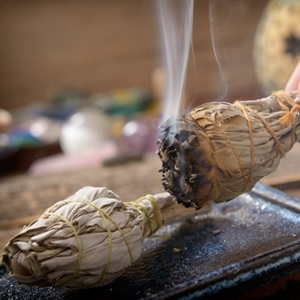
Many people suffering from mental disorders such as anxiety, depression and schizophrenia turn to traditional doctors because there’s no accessible treatment for 90% of mental health patients in state hospitals.
The World Health Organisation (WHO) estimates that more than 33% of countries allocate less than 1% of their total health budgets to mental health. This means that the magnitude of mental health across the world is not matched by the size and effectiveness of the response it demands. It’s a concerning finding, considering one-third of South Africans experience at least one mental disorder during their lifetime.
African Traditional Medicine Day
With very limited access to psychiatric treatment in the South African public health sector, "Western" doctors are trying to close the treatment gap by combining conventional and traditional treatments.
Speaking ahead of African Traditional Medicine Day – an initiative of WHO – that took place on 31 August, Specialist psychiatrist Dr Lerato Dikobe-Kalane, a member of the South African Society of Psychiatrists (SASOP) called for cooperation between conventional Western medicine and traditional health practitioners to improve access to mental healthcare.
Dikobe-Kalane believes that traditional healers can play an important role in the frontline of treatment for mental disorders such as depression and anxiety, as well as substance abuse.
“We have an estimated 200 000 traditional healers in South Africa – they have intimate knowledge of traditional medicine and cultural and spiritual practices and beliefs. They are respected in the community and their advice is sought out and respected, and they are able to offer culturally appropriate treatment.”
According to Dikobe-Kalane, there is evidence that the psychosocial role of traditional healers can help to relieve distress and mild symptoms of common mental disorders. Some of the treatment includes informal counselling and support in improving family, community or work relationships.
A beneficial collaboration
Reportedly South Africa has only 915 practising psychiatrists, and the majority of them work in the private sector and in urban areas. Because of this shortage, a staggering 75% of South Africans with mental disorders do not receive the treatment they need.
Since traditional healers play an influential role in providing health information in both rural and urban settings, a collaboration between conventional, Western health practitioners and traditional healers can educate traditional healers on common mental disorders and treatment options, and also refer people for more specialist treatment, Dikobe-Kalane said.
A South African Stress and Healthy study in 2009 was the first to research mental disorders on a nationally-representative scale and showed that alternative, or traditional, medicine is commonly used by South Africans. This is especially the case for those suffering from anxiety or battling substance abuse.
Traditional healers – a misconception
Traditional healers primarily use natural herbs in their practice. They are trained to be mindful, but are not experts, traditional healer trainee Choco Nkosi explained to CNN.
The calling to become a healer starts with an "initiation illness". It is believed that the sickness will persist until the chosen individual heeds the calling and seeks out a trainer to initiate them into becoming a healer.
Traditional healers are not to be confused with witch doctors, a Johannesburg-based traditional healer, Dzonga told CNN. “They do not cure. The witch doctor actually brings negative energy.”
Severe mental disorders require Western medical treatment
Educating traditional healers about common mental disorders and treatment options could have a significant impact on people living with untreated mental health problems, said Dikobe-Kalane, especially considering our country’s limited public sector psychiatric facilities. However, she cautioned that treatment for severe mental illness should be left to Western practitioners.
“There is little evidence that traditional healers have an impact on treatment of severe mental illnesses such as bipolar and psychotic disorders. This is why collaboration between traditional and Western practitioners is needed – to ensure that they understand each other’s roles and cultures, and are able to refer treatment-resistant patients to alternative modes,” she said.
Image: iStock




 Publications
Publications
 Partners
Partners










